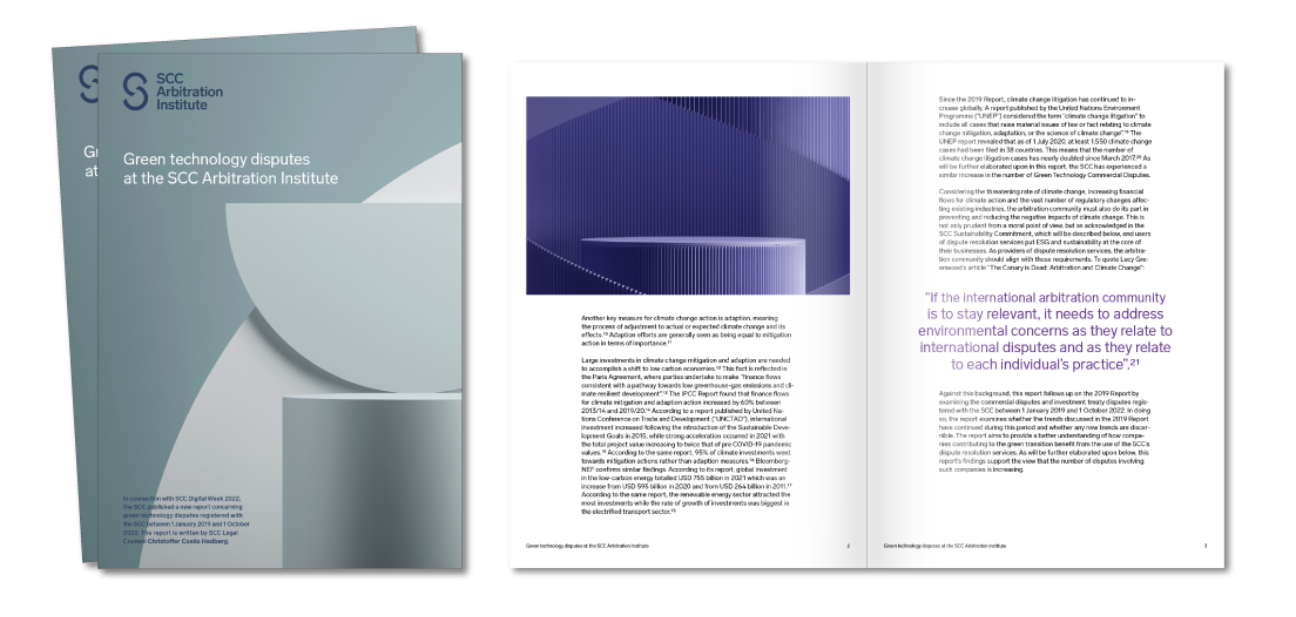Record number of green technology disputes at the SCC 2019-2022
In connection with SCC Digital Week 2022 last year, the SCC published a report by SCC Legal Counsel Christoffer Coello Hedberg concerning green technology disputes registered with the SCC between 1 January 2019 - 1 October 2022. Here are the key findings.
Published 2023-02-03

The report highlights the need for the arbitration community to play its part in reducing the negative impacts of climate change and facilitating the transition to a low-carbon economy.
Christoffer Coello Hedberg's report "Green technology disputes at the SCC Arbitration Institute" examine commercial disputes and investment treaty disputes registered with the SCC between 1 January 2019 and 1 October 2022. It also serves as a follow up on a report published by the SCC in 2019 by Andrina Kjellgren, titled “Green Technology Disputes in Stockholm”. The 2019 report looked at commercial disputes involving green technologies registered by the SCC between 2014 and 2018, as well as investment treaty disputes concerning investments in the green technology sector registered by the SCC between 2012 and 2018.
This 2022 report found that parallel to a global increase in climate change litigation, the number of registered SCC cases where one or more parties used a green technology as part of their main business activity increased significantly between 1 January 2019 and 1 October 2022 compared to cases registered between 2012 and 2018. Other key findings were:
- The SCC registered a record number of green technology commercial disputes between 1 Jan 2019 and 1 October 2022 with a total number of 61.
- The green commercial disputes were managed efficiently and expeditious. In the cases ending with a final arbitral award, the awards were rendered within 12 months in 77 % of the cases.
- 52 % of the commercial cases involved Swedish parties only, 48 % of the cases were international.
- Parties from 20 different countries were involved in the commercial cases.
This finding indicates that the SCC is an increasingly attractive venue for the resolution of disputes involving companies whose commercial activities reduce the negative effects of climate change. This report’s findings suggest that this is also the case in an international context, since the share of disputes involving parties from countries other than Sweden has increased.
The report highlights the need for the arbitration community to play its part in reducing the negative impacts of climate change and facilitating the transition to a low-carbon economy.
”If the international arbitration community is to stay relevant, it needs to address environmental concerns as they relate to international disputes and as they relate to each individual’s practice”.